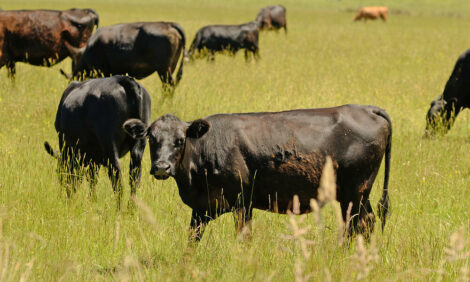



NFU20: promoting, growing and protecting British dairy
Promoting, growing and protecting British dairy were the key themes at this year’s dairy breakout session at NFU Conference, and dairy board chairman Michael Oakes opened it by looking forward to a more optimistic 2020.Mr Oakes urged session attendees to be encouraged by high figures surrounding UK consumption of British dairy products, as well as setting the sector’s sights on positive progress being made in changing the dialogue surrounding ruminant agriculture in the media.
One dairy member, Andrew Stone, asked how farmers should respond to groups and activists online. Mr Oakes referred session go-ers to the Rethinking Ruminants toolkit and said: "One of the NFU's greatest assets are its members. The document contains assets to help you."
Rethinking Ruminants is the member directory that helps farmers lead the conversation in providing evidence-based facts to engage the public, promote the sector and dispel misconceptions and misinformation.
The toolkit is a comprehensive catalogue of facts and figures, and acts as a public-facing booklet as well as engaging slide decks for members to personalise their farming story. It will provide a united, positive voice for British dairy and livestock farming and can be supported by the public facing Facts about British red meat and milk document, which was also launched at NFU Conference.
Chief dairy adviser James Osman shared the NFU’s key priorities moving into 2020, with an onus on ensuring UK dairy farmers can operate in an environment that enables them to thrive.
He said that the dairy team will focus on:
- Lobbying government to secure the right investment and trading environment, with an emphasis on high standards not being undermined in future trade policy and finding solutions to issues seen in the liquid milk market.
- Leading Net Zero ambitions and the ambitious role dairy farmers can play by boosting productivity and reducing emissions, encouraging farmland carbon storage, and coupling bioenergy with carbon capture to help maintain sustainable food production for an ever-growing and evolving population.
National dairy council of Ireland CEO Zoe Kavanagh provided insight into consumer trends in dairy consumption around the globe. This generated optimistic discussion between the panel members and audience around firmness in international demand for dairy products, as well as new opportunities for UK dairy farmers.
While the consumer voice is becoming increasingly impactful in shaping policy, there must be a distinction made between those and the larger consumer base of the average global consumer, who enjoys dairy produce as a crucial source of nutrition.
One member was keen to hear about what British milk needs to do as part of global Britain, and Ms Kavanagh urged patience.
She said: "We have decades of experience of going into markets and have structures in place. Bord Bia (the Irish Food Board) and all various co-ops are in emerging markets working through dedicated offices to present ourselves. But we have focused on USPs and carved out positions in sports nutrition and health ageing.
"Before the abolition of milk quotas [limiting Irish milk production to 5.5 billion litres per year between 1984 and 2015], the agricultural return on dairy was 42 cents, today it’s 56 cents. We’ve added products that offer better return for producer."
This message chimes with statements heard around NFU Conference during the opening day, which explained that new contracts and trading partnerships will take time to implement.
Even NFU President Minette Batters said after her opening address: "Do not think this will be done in 12 months. We work in different ways to our future trading partners, so we need to allow time to have those conversations."
The mean speakers at the NFU Conference are Michael Oakes (dairy board chairman, NFU), James Osman (chief dairy adviser, NFU) and Zoe Kavanagh (CEO, national dairy council of Ireland) and the conference is chaired by Paul Tompkins (Dairy Board Vice Chairman, NFU).
TheCattleSite News Desk


